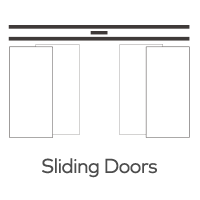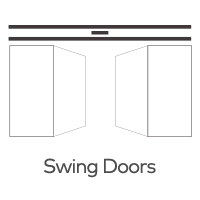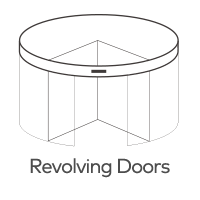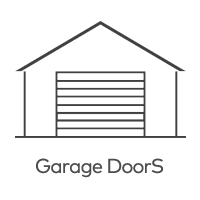Advantages and disadvantages of Automatic Door
Today, the design of automatic doors is known to everyone and many people have their own opinions about such systems. But it is worth knowing about the advantages and disadvantages.
Among the positive aspects, ease of use and maximum safety are distinguished. Automation settings for sliding doors allow you to set a variety of operating modes depending on the situation.
Sliding structures are also quite reliable and very durable. The key to this is the process of opening and closing without human intervention. People often slam the door, but the automation does not.
Another benefit is energy conservation. This is also ensured by the fact that the door closes itself immediately after the person has left it.
Sliding models are also purchased for their versatility. With them it is possible to close even the widest openings.
When talking about to the disadvantage, maintenance is required. If you do not pay due attention to these systems, they can fail.
Another disadvantage is the cost if purchased for private use. Sliding electric systems are quite expensive for an ordinary resident of a private cottage who decided to change the doors.
These doors offer convenience, accessibility, and improved traffic flow. However, like any technology, automatic doors come with their own set of advantages and disadvantages. In this article, we will explore the benefits and drawbacks of automatic doors to help you make an informed decision about their implementation.
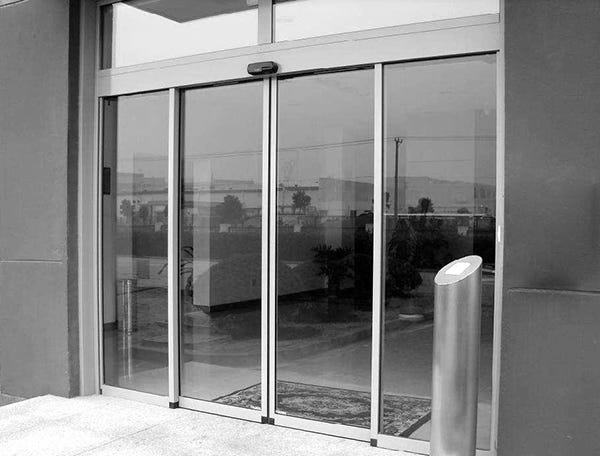
Advantages of Automatic Doors
1. Convenience and Accessibility: One of the primary advantages of automatic doors is their convenience. They allow for easy and hands-free entry and exit, making them ideal for individuals with disabilities, the elderly, or those carrying heavy items. Automatic doors eliminate the need to physically push or pull a door, providing a seamless experience for all users.
2. Traffic Flow and Efficiency: Automatic doors can greatly improve traffic flow in high-traffic areas such as airports, shopping centers, or hospitals. They open and close quickly, minimizing congestion and facilitating a smoother movement of people. This efficiency can enhance customer satisfaction, reduce waiting times, and improve overall operational efficiency.
3. Energy Efficiency: Automatic doors are often designed with energy efficiency in mind. Many models feature sensors that detect the presence of individuals, opening only when necessary and closing promptly to maintain indoor temperature and reduce energy loss. This can contribute to cost savings on heating and cooling expenses.
4. Safety and Security: Automatic doors are equipped with safety features that promote security and prevent accidents. Sensors, such as infrared or motion detectors, can detect obstructions in the doorway, preventing the door from closing on individuals or objects. Additionally, automatic doors can be integrated with access control systems, allowing for controlled entry and enhancing security measures.
Disadvantages of Automatic Doors
1. Initial Cost and Installation: Automatic doors tend to have a higher upfront cost compared to traditional manual doors. The installation process can be complex and requires skilled professionals to ensure proper functioning. The cost of purchasing and installing automatic doors should be carefully considered, particularly for smaller businesses or residential applications.
2. Maintenance and Repairs: Automatic doors require regular maintenance to ensure optimal performance. Components such as sensors, motors, and control panels may require periodic inspections, adjustments, or replacements. Maintenance costs and the need for prompt repairs should be factored into the overall cost of implementing automatic doors.
3. Power Dependency: Automatic doors rely on a continuous power supply to function. In the event of a power outage or system failure, manual operation may not be possible, potentially causing inconvenience and compromising access to the building. Backup power systems, such as uninterruptible power supplies or emergency generators, can be installed to mitigate this issue.
4. Sensitivity to Environmental Conditions: Some automatic doors may be sensitive to environmental factors such as extreme temperatures, humidity, or strong winds. Adverse weather conditions can affect their performance, leading to slower response times or malfunctions. Regular maintenance and selecting doors designed for specific environmental conditions can help mitigate these issues.
Conclusion
Automatic doors offer numerous advantages, including convenience, accessibility, improved traffic flow, and enhanced security. They contribute to a positive user experience and can improve operational efficiency. However, it's important to consider the higher upfront costs, maintenance requirements, power dependency, and potential sensitivity to environmental conditions. Evaluating the specific needs and circumstances of your property or business will help determine whether the benefits outweigh the disadvantages when considering the implementation of automatic doors. Proper installation, regular maintenance, and choosing reputable manufacturers can ensure the optimal functioning and longevity of automatic doors.


